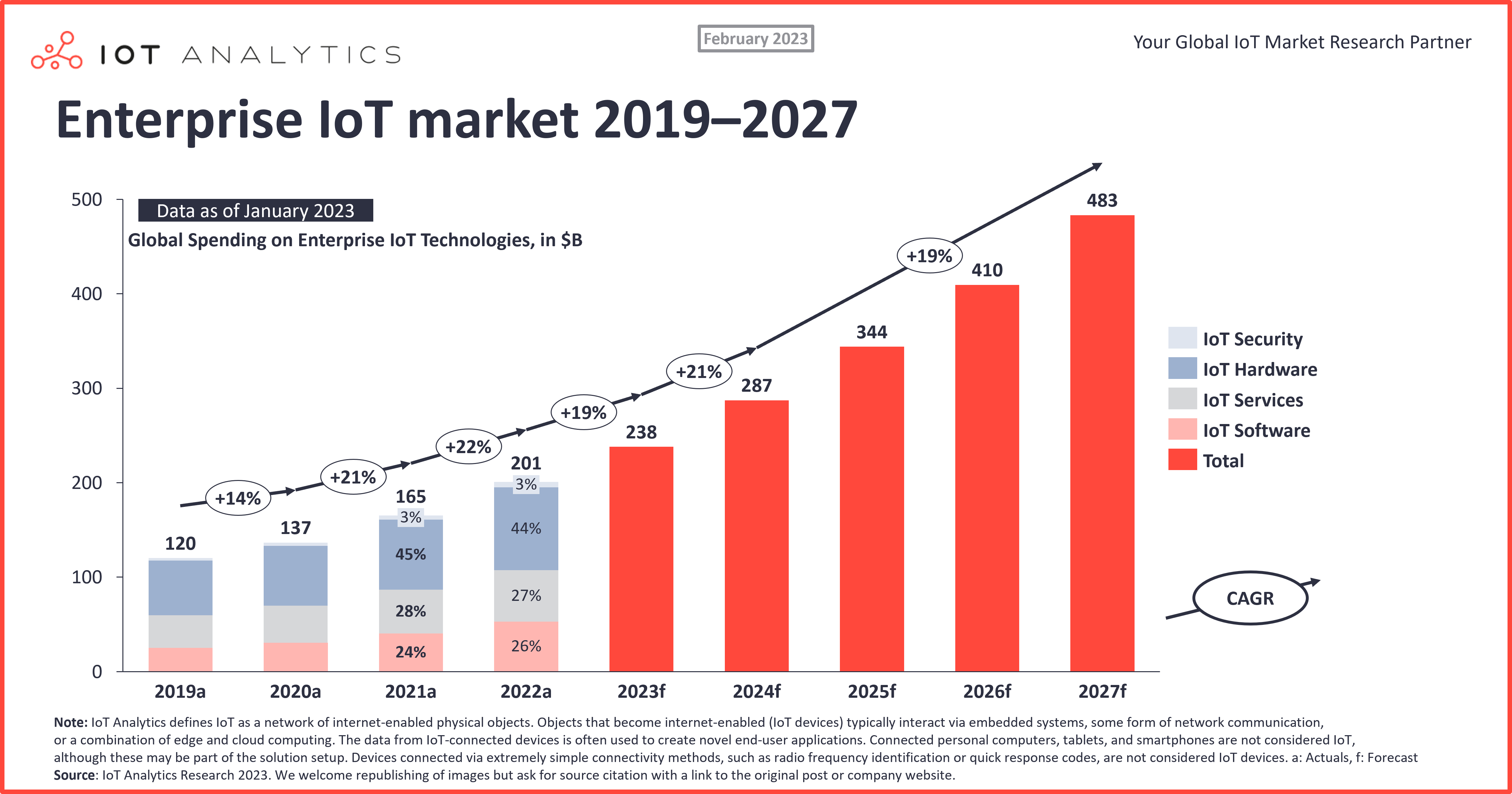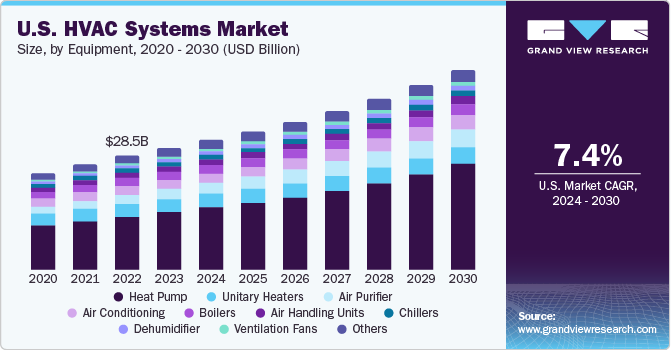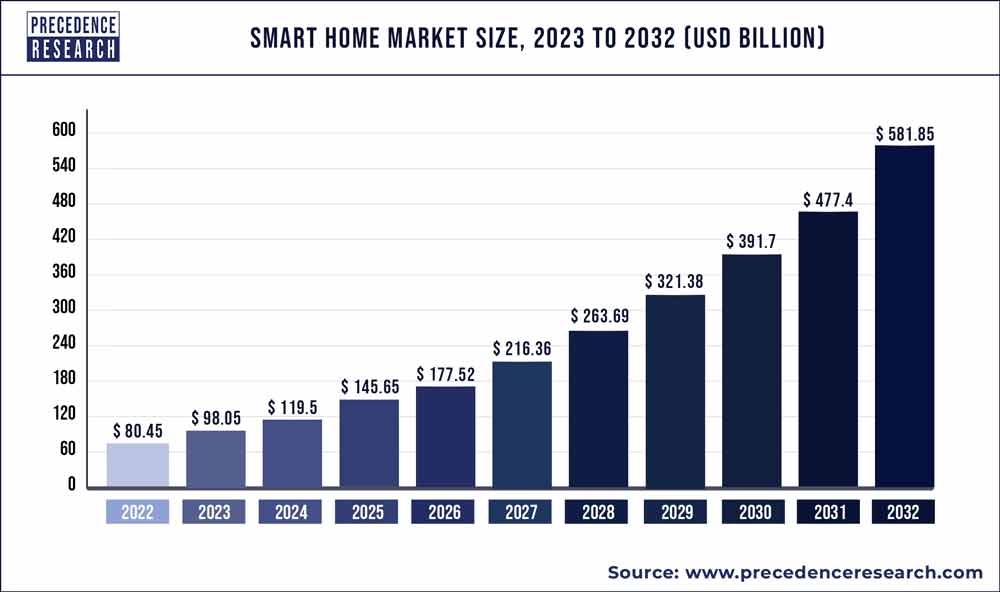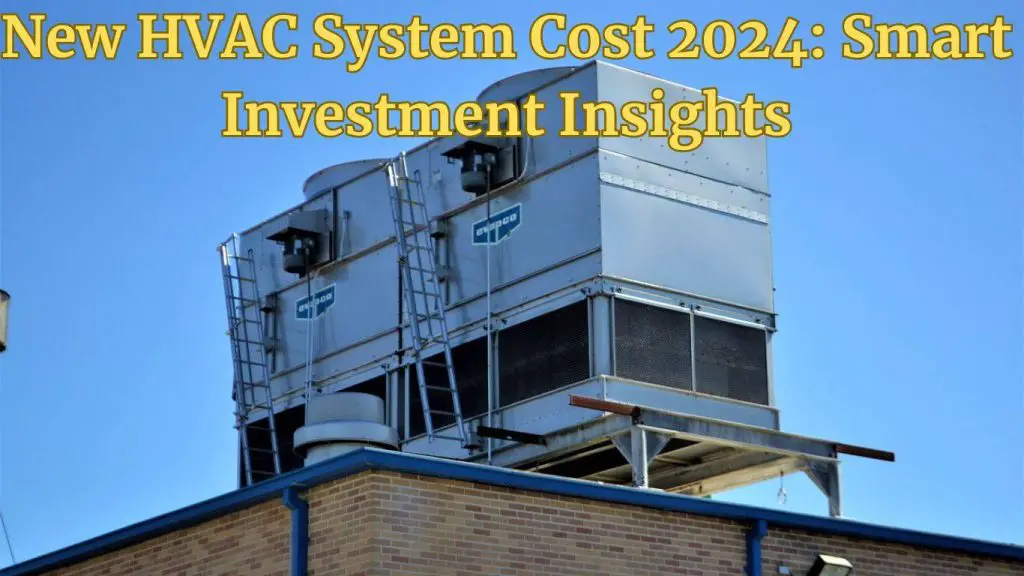The average cost for a new HVAC system is between $5,000 to $10,000. Installation complexity and system size can influence the final price.
Investing in a new HVAC system significantly impacts your home’s comfort and energy efficiency. Understanding the factors that contribute to the cost is crucial for homeowners considering an upgrade. Key elements include the type of system (such as central air conditioning, heat pump, or furnace), the unit’s efficiency rating, and the scale of the installation.
Seasonal Energy Efficiency Ratio (SEER) ratings, for instance, can affect both the upfront cost and the long-term savings of an HVAC system. Choosing the right contractor can also make a difference in ensuring quality installation and service. Homeowners should seek multiple quotes to balance cost and quality when selecting a new HVAC system.
The Current Landscape Of Hvac Systems
Exploring the world of HVAC systems reveals a rapidly evolving market. Costs and technology are the main factors driving changes. Homeowners and businesses alike seek efficient, cost-effective solutions. This discussion focuses firstly on price patterns, then on innovation in the sector.
Cost Trends In Recent Years
Understanding recent cost trends is crucial for buyers. The last few years have seen a shift in HVAC system pricing. Several factors influence this:
- Raw material prices
- Labor costs
- Energy efficiency standards
Data from industry studies highlight these changes. Table below shows average costs over the last five years.
| Year | Average Cost |
|---|---|
| 2019 | $5,000 |
| 2020 | $5,500 |
| 2021 | $6,000 |
| 2022 | $6,500 |
Technological Advancements
Technological breakthroughs reshape the HVAC industry. Recent advances include:
- Smart thermostats
- Energy-efficient designs
- Environment-friendly refrigerants
- Machine learning for maintenance
These innovations make systems smarter and greener. Consumers enjoy lower utility bills and enhanced control. Brands that blend tech and functionality lead the market.

Credit: iot-analytics.com
What Determines The Cost Of A New Hvac System?
When it’s time to invest in a new HVAC system, several factors come into play. Understanding what goes into the cost can help you budget effectively. Key elements include system size and capacity, energy efficiency ratings, and the complexity of installation. Let’s break down these cost determinants:
Size And Capacity
The size of an HVAC unit directly impacts price. Greater capacity units are typically more expensive. It’s essential to choose the right size for your space to ensure efficiency and comfort.
- Too small, and the system will overwork, leading to increased wear and higher bills.
- Too large, and you may face unnecessary initial costs and energy expenditure.
Energy Efficiency Ratings
Energy efficiency is measured by SEER (Seasonal Energy Efficiency Ratio) for cooling and AFUE (Annual Fuel Utilization Efficiency) for heating.
Higher ratings often come with a higher cost but can save money long-term on energy bills. An energy-efficient system is a smart investment.
Installation Complexity
Installation factors include:
| Aspect | Impact |
|---|---|
| Existing System | Modifying or removing an old system can add to costs. |
| Ductwork | Repairing or installing new ducts increases complexity and price. |
| Accessibility | Hard-to-access areas may result in higher labor costs. |
Understanding these factors helps anticipate the cost of a new HVAC system installation.
Smart Investment: Analyzing The Value Of High-efficiency Hvac Units
Installing a high-efficiency HVAC system is a smart decision. These units might cost more upfront, but the benefits over time can be significant. Let’s explore how investing in a high-efficiency system can be worthwhile.
Long-term Savings
High-efficiency systems reduce monthly energy bills. They use less energy to heat or cool a space. This means you save money every month. Over the years, these savings can add up.
- Lower energy consumption
- Reduced utility bills
- More money in your pocket over time
Environmental Impact
High-efficiency HVAC units help the planet. They consume less fuel and emit fewer greenhouse gases. By choosing these units, you contribute to a healthier environment.
| Standard HVAC Unit | High-Efficiency HVAC Unit |
|---|---|
| More energy use | Less energy use |
| Higher emissions | Lower emissions |
Incentives And Rebates
Many governments and companies offer incentives for energy-efficient appliances. This means you could get money back after installing a high-efficiency HVAC unit. Check local programs to see what you qualify for.
- Tax credits
- Utility rebates
- Manufacturer discounts

Credit: www.grandviewresearch.com
Breaking Down 2023 Hvac System Costs
Understanding the cost of a new HVAC system can be complex. A broad spectrum of elements affects the final price. Let’s demystify the costs attached to upgrading or installing a new HVAC system in 2023. With better technologies emerging, prices vary widely. One can expect different costs based on size, type, and efficiency of the system. By breaking down the aspects of pricing, homeowners can make informed decisions on their investments.
Average Price Ranges
New HVAC systems can range massively in price. This variation ranges from the basic models to high-end units. Here’s a rough breakdown:
- Entry-level: $3,000 to $5,000
- Mid-range: $5,000 to $10,000
- Top-tier: $10,000+
These figures include both the unit and installation. Keep in mind, prices fluctuate based on region and the installer’s rates.
Factors Influencing Final Costs
Several factors impact the total HVAC system cost. We must consider them all:
- Unit Size: Bigger spaces need larger units.
- System Type: Options like central air, heat pumps, or ductless mini-splits differ in price.
- Energy Efficiency: Higher efficiency typically means higher upfront costs but lower bills later on.
- Brands: Premium brands often carry a higher price tag.
- Installation Complexity: Difficult installations in tight spaces can raise labor costs.
Always consult a professional for an accurate quote.
Additional Expenses To Consider
Extra costs can sneak into the final bill. These may include:
| Expense | Potential Cost |
|---|---|
| Ductwork modification | $500 – $2,000+ |
| Zoning systems | $2,000 – $3,500 |
| Additional equipment | $250 – $800 |
| Permits and fees | Varies by locality |
Be sure to ask if your quote includes these potential costs.
Choosing The Right Hvac System And Installer
Embarking on the journey to install a new HVAC system is a significant decision. It affects comfort, energy consumption, and home value. The right system and installer guarantees performance and reliability. This guide navigates through essential steps to help smart decisions.
Selecting The Best System For Your Needs
Understanding individual living space needs is crucial. Size, efficiency, and type determine the best fit:
- Size: Accurate measurement means peak efficiency. Too big or small creates problems.
- Efficiency Ratings: Look for high SEER for cooling, and HSPF for heating. These save money over time.
- Type: Central air, heat pumps, or ductless mini-splits each offer unique benefits. Consider climate and house layout.
Qualities Of Reputable Hvac Installers
Choosing an installer is as important as the system itself:
- Experience: Years in business reflect reliability and skill.
- Licensing and Certification: Ensure they have proper credentials and endorsements.
- Reviews and References: Positive feedback from past customers builds trust.
- Estimates: Professionals offer clear, up-front, written estimates.
Understanding Warranties And Service Contracts
| Warranty | Service Contract |
|---|---|
| Covers parts and sometimes labor | Regular maintenance for system longevity |
| Check length and what’s included | Often include priority service and discounts |
| Limited or extended options | Helps prevent unexpected costs |
Boldly ask questions about warranties and service contracts. Knowing these details ensures peace of mind.
Financing Your Hvac Investment
Deciding to upgrade or install a new HVAC system in your home isn’t just about choosing the right unit. It’s also about how you’ll finance this significant investment. Home comfort comes with a price, but with a smart approach to financing, you can manage the cost without straining your budget. Explore the options for payment, weigh the pros and cons of different financing routes, and navigate loans and credits to make an informed decision for your home’s heating and cooling needs.
Options For Payment
- Cash Payment – Utilize savings to pay upfront
- Credit Cards – Potential rewards but higher APRs
- Home Equity Loans – Low-interest rates using home as collateral
- HVAC Financing Programs – Specific to HVAC investments
Pros And Cons Of Financing
| Financing Pros | Financing Cons |
|---|---|
| Immediate Funding | Interest Accumulation |
| Spread Cost Over Time | Credit Check Required |
| Preserve Savings | Long-term Commitment |
Navigating Loans And Credits
Understanding the landscape of loans and credits can help alleviate financial pressure when investing in a new HVAC system. Here’s a brief guide:
- Research available loans – Seek low-interest options.
- Examine loan terms – Opt for favorable repayment conditions.
- Investigate tax credits – Certain systems may qualify for tax benefits.
- Seek professional advice – Consult with financial advisors for optimum solutions.

Credit: www.precedenceresearch.com
Frequently Asked Questions For New Hvac System Cost 2
What Time Of Year Is Cheapest To Replace Hvac?
The cheapest time to replace an HVAC system is typically during the off-peak seasons, like spring and fall, when demand for heating and cooling installations is lower.
Why Is New Hvac So Expensive?
New HVAC systems are costly due to advanced technology, energy-efficiency features, professional installation requirements, and durable materials used. High demand for skilled labor also influences pricing.
What Is The Most Expensive Part Of An Hvac System?
The compressor is typically the most expensive part of an HVAC system to replace or repair.
Why Would A House Have 2 Hvac Units?
A house may have 2 HVAC units to efficiently manage temperature control in larger homes or for zoned heating and cooling systems for different areas.
Conclusion
Upgrading to a new HVAC system is an investment in comfort and efficiency. While costs vary, researching options ensures you find the best fit for your budget. Remember, quality installation and regular maintenance are key to long-term savings. Let’s embrace a future of optimal home climate control.

